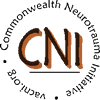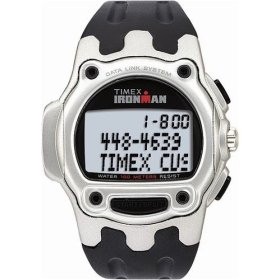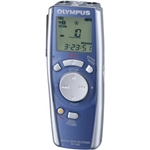Timex Data Link
Watch :
This wristworn, simplified PDA is far and away the best reminder
watch on the market: practically indestructible, easy to program,
with a large memory and insistent reminder alarm, the Data Link is
also inexpensive (less than $70). For people who only need reminder
alarms to help them stay on task during the day (reminders for medications,
appointments, and other activities, for instance), the Data Link
is usually my choice.
In order to program this device, however, the user must have a Windows
OS personal computer. The watch comes with a cd that is loaded onto
a personal computer, providing a pop-up calendar where daily event
reminders can be entered and downloaded to the watch via a USB cord.
This sounds complicated, but it is actually quite simple. The Data
Link software also includes an address book section, good for storing
useful phone numbers, and a memo section, where users may store passwords
or locker numbers.
Some of my clients have found PDAs daunting. If they have a caregiver
to program the watch, however, all they need to do is: (1) hear the
alarm reminder beep, (2) read the reminder message scrolling across
the watch face, (3) push a button on the watch to turn off the alarm,
and (4) perform the task they were reminded to do. This is the most
basic skill-set that a person must have in order to benefit from
an automated reminder system. If a person can do those four things,
then they can benefit from a Data Link watch. If they cannot do so,
then they are not likely to benefit from any electronic reminder
device.
Digital Audio Recorders:
Available for under $100 from office supply stores, many digital
recorders can be used as reminder systems. The user records a prompt
in her/his own voice, then types in a date/time for the message to
be automatically replayed. You don't need a personal computer or
anything else (except AA batteries) to use one of these smaller than
pocket-size devices. The drawbacks are that it can be complicated
pushing all the right buttons in the right sequence to record a
reminder alarm (something many people have difficulty remembering
how to do), and you cannot record repeating reminders (for instance
a medication prompt that would go off every day at the same time).
Alphasmart Dana mini-laptop with Palm Software:
Alphasmart mini-laptops are staples in many school systems.
Lightweight, versatile, sturdy and relatively inexpensive, they
are often used by students who have difficulty with handwriting.
When you move up to the Dana, you also get a Palm organizer onboard,
which has allowed my clients to keep track of assignments and
remember other daily tasks, while also doing their homework on
the Dana and beaming it directly to their teacher the next day.
Dana drawbacks include the somewhat dim monochrome screen, and the
necessity to use a stylus to select Palm functions. For people with
dexterity problems who need keyboard input, that's not a small problem.
The new Dana includes wireless Internet access, but again, the small
monochrome screen makes web-surfing not so much fun.
Wireless PDA Keyboards:
While we're discussing dexterity issues, another solution for PDA
users is the addition of a wireless portable keyboard. Wallet-sized
when folded up, they are nearly full-sized when open, and turn your
PDA into a mini-laptop of sorts. Palm, Targus and Belkin make good
versions.
Pagers and Cell Phone Reminder Text Messages:
The NeuroPage, a reminder paging system, is one of the earliest
electronic cognitive aids to have been well researched. Research
participants liked them and found them useful. They carried the pager
around, and received pre-programmed reminder prompts to perform daily
activities. A company called PageMinder offers this service in the
U.S., and any generic paging system can work just as well. The drawback
to pagers is similar to that for cell phones: You have to pay a monthly
fee to use the service.
If you have a cell phone with text messaging enabled, there are
several companies that allow you to email free text message reminders
to your phone. Using these free utilities can be cumbersome, however,
since you cannot program in repeating reminders as you can with a
PDA. Text messaging is also an add-on feature to any cell phone plan,
with its accompanying additional monthly charge.
There are a number of other tools that can be used as assistive
technology for cognition in home and community environments, but
these are the primary devices we have used so far in our research.
Let's look now at how to go about using AT for cognition with your
clients who have acquired brain injury.
|





